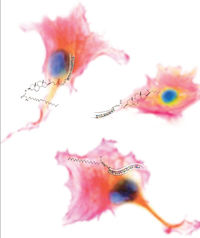NicOx’ naproxcinod shows highly significant reduction in daytime blood pressure versus naproxen
New analysis of the 104 ABPM study presented at the American Heart Association
Advertisement
NicOx S.A. announced that a new analysis of the data from the 104 Ambulatory Blood pressure Monitoring (ABPM) study for naproxcinod was presented at the American Heart Association Scientific Sessions 2008, in New Orleans, USA. This ABPM pilot study in hypertensive volunteers was designed to compare the 24-hour blood pressure profiles of naproxcinod 750 mg bid and naproxen 500 mg bid. Naproxcinod is NicOx’ lead investigational product and the first compound in the new Cyclooxygenase-Inhibiting Nitric Oxide-Donating (CINOD) class of anti-inflammatory agents.
This new post hoc analysis was accepted by the American Heart Association scientific panel and compared the mean 24-hour systolic blood pressure (SBP) as measured by ABPM in the two groups (i.e. naproxcinod vs. naproxen), at the end of the 2 weeks of active treatment. The mean 24-hour SBP showed a difference of 2.4 mmHg (standard error 0.87 mmHg) in favor of naproxcinod as compared to naproxen (p=0.007) after 2 weeks of treatment. Interestingly, for the daytime measurements (the 8 hours following the morning dose), the mean 8-hour SBP showed a difference of 4.4 mmHg (standard error 0.98 mmHg) in favor of naproxcinod as compared to naproxen (p<0.0001) after 2 weeks of treatment.
NicOx is developing naproxcinod in late phase 3 clinical studies, which are designed to demonstrate that it is safe, well tolerated and effective for treating the signs and symptoms of osteoarthritis, in addition to having no detrimental effect on blood pressure, in contrast to traditional NSAIDs and COX-2 inhibitors. The results of the third phase 3 trial for naproxcinod (the 303 study) are expected before the end of the year and the filing of a New Drug Application (NDA) for naproxcinod with the U.S. Food and Drug Administration (FDA) is projected for mid2009.






















































